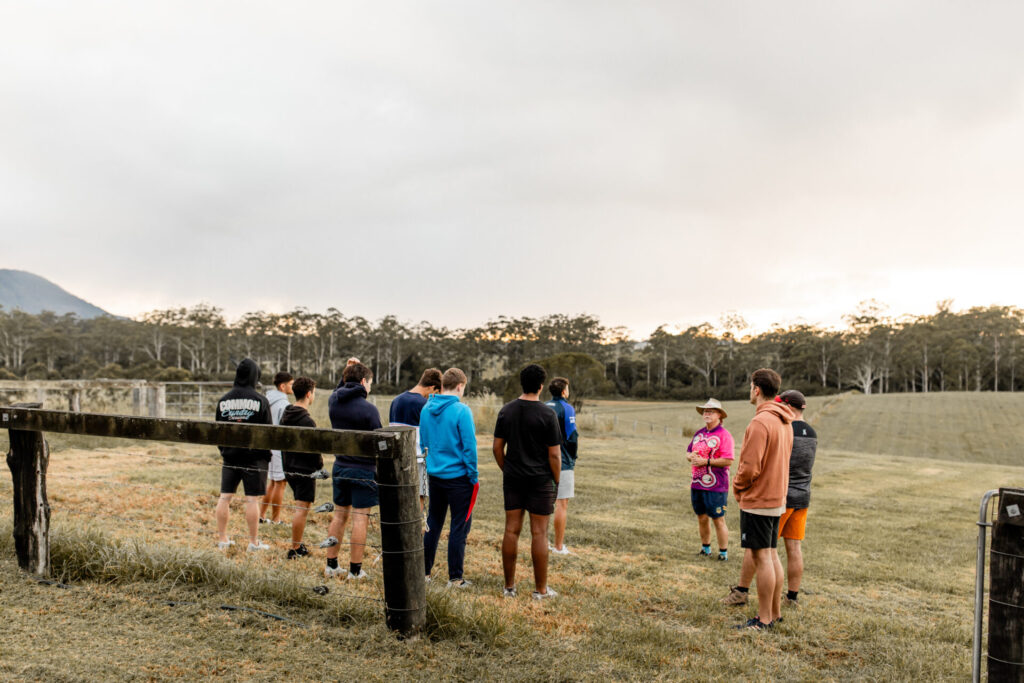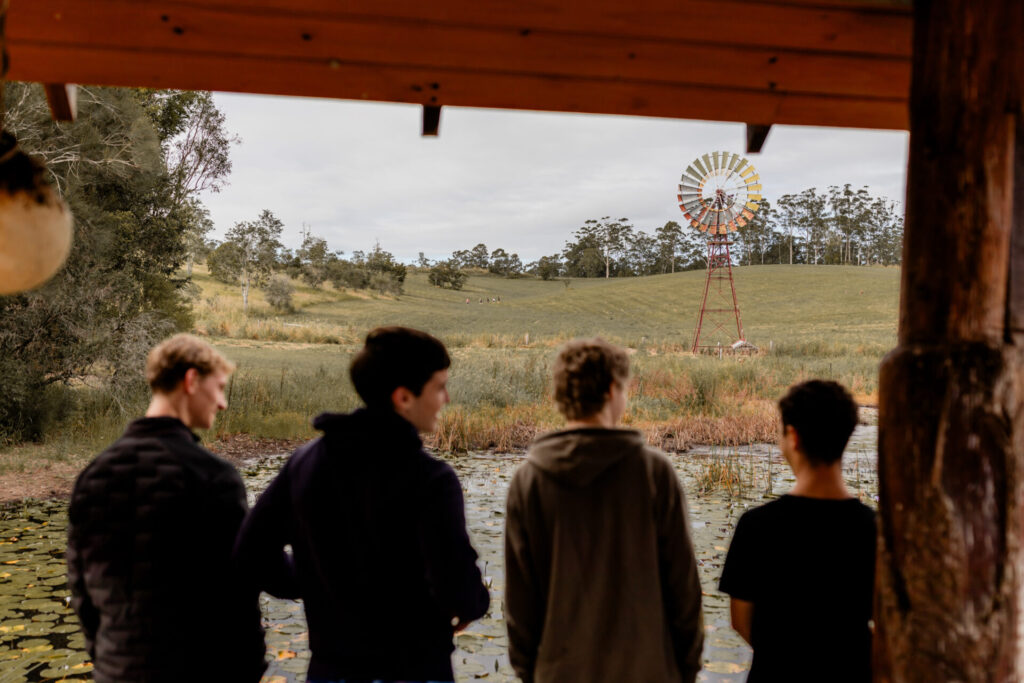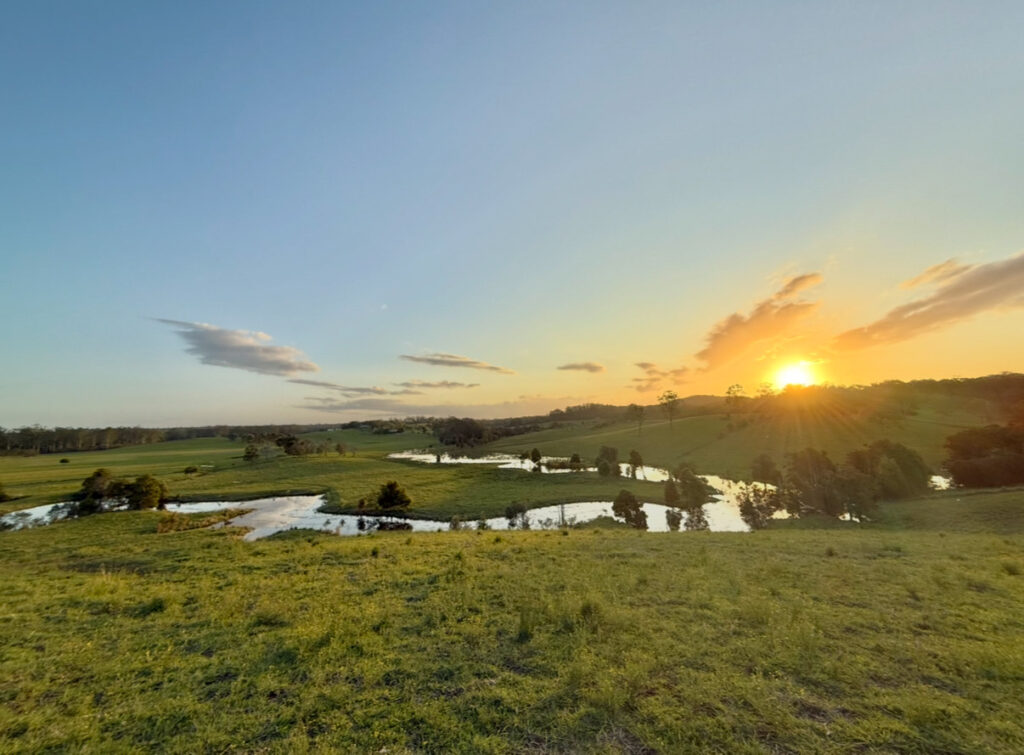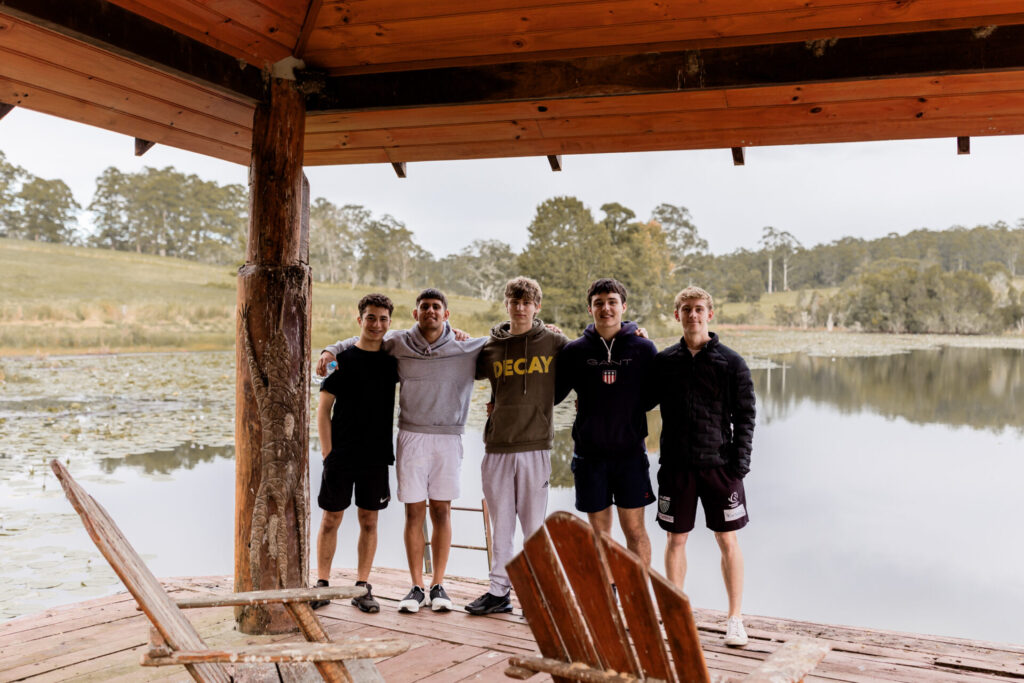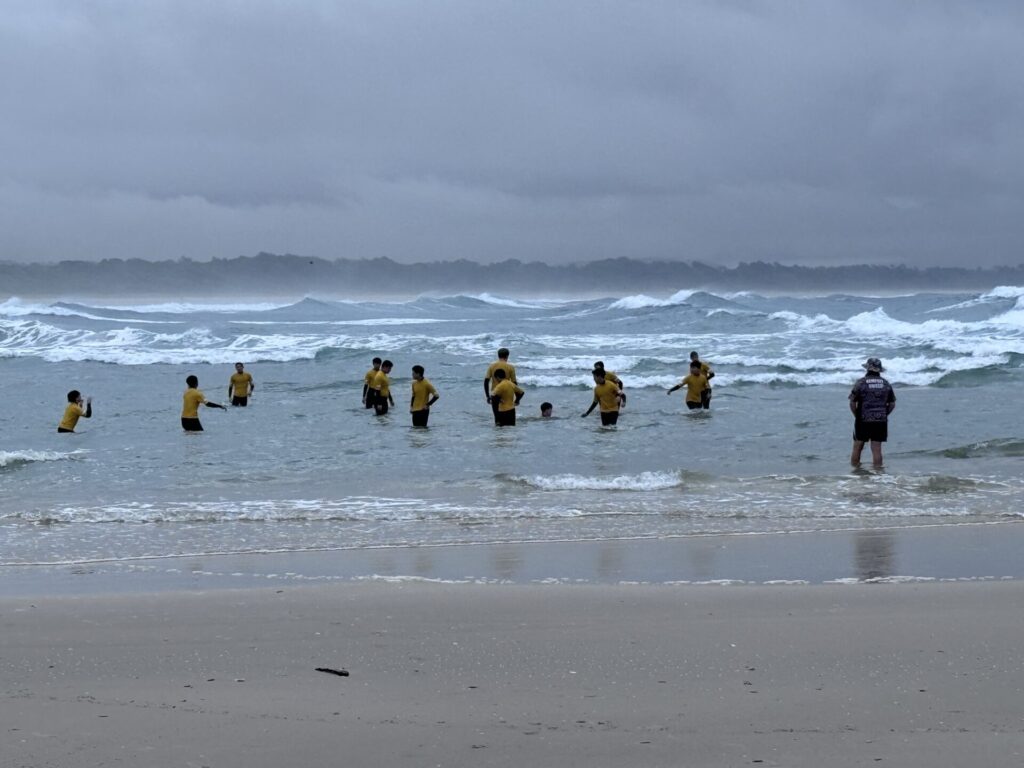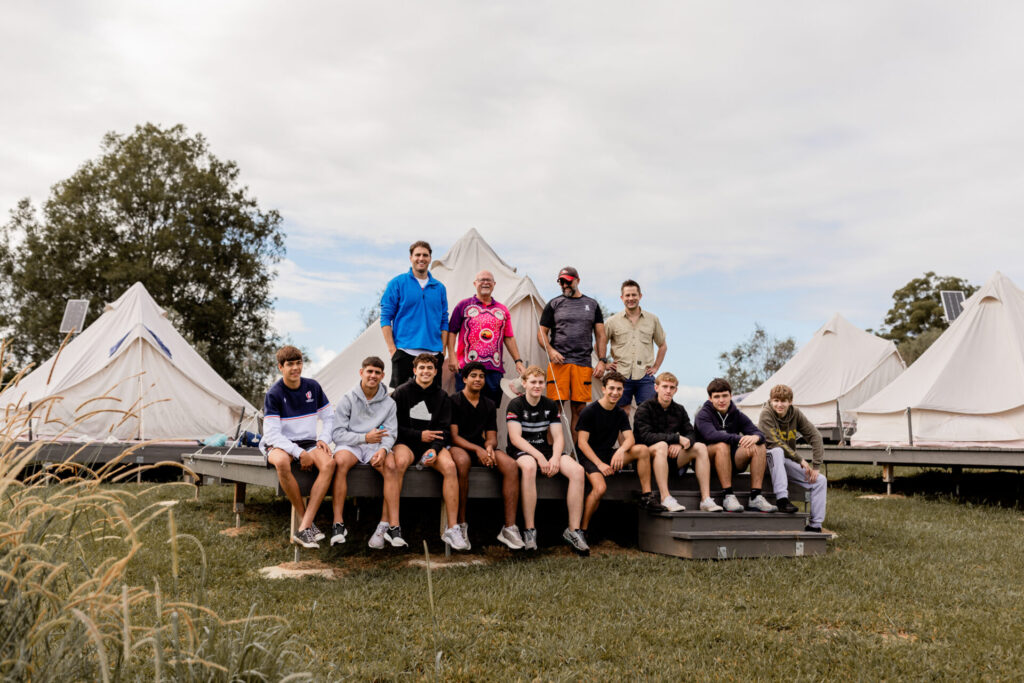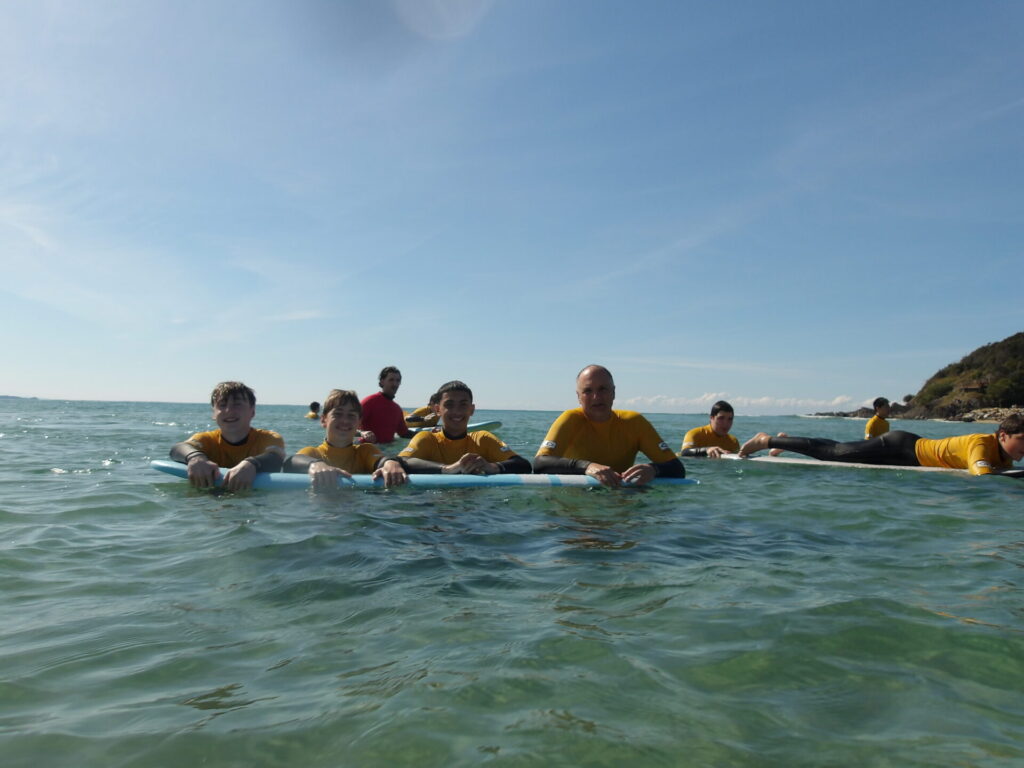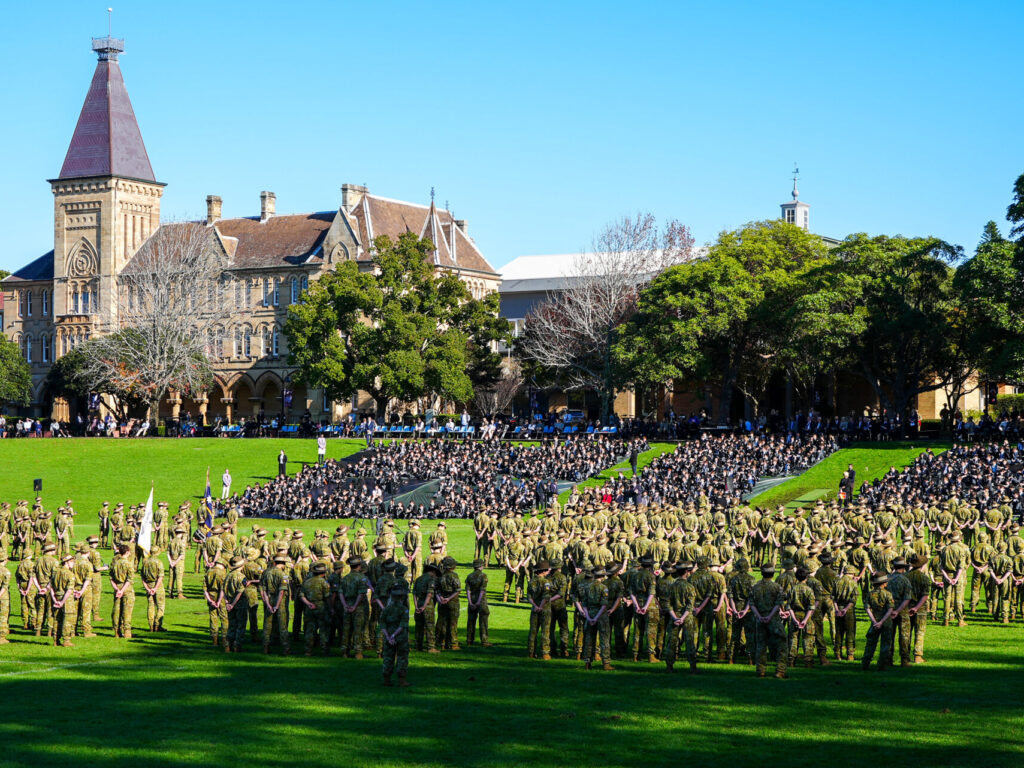Connection and cracking open conversations at Eungai Creek
It’s one of life’s sweet ironies that through distance comes re-connection, and Mr Mark Morrison, OAM and Director of Eungai Creek, believes it brings something else important too – gratitude.
The celebrated educator and youth worker had little doubt the pioneering Year 9 cohort who experienced the College’s new outdoor, Indigenous and social immersion campus for two weeks in 2024 would naturally become closer as a peer group.
‘Sleeping in tents, cleaning and cooking, being called on to talk to the group, not competing on whose shirts or shoes are the most fashionable plus washing your own socks and jocks, does that,’ he says.
However, it’s the ignited conversations and strengthening connections between visiting students, and their parents, which has surprised and delighted him most.
‘Obviously one of the biggest challenges some of our students and parents face when the students leave home to travel up here to take part in the 12-day program at Eungai Creek is separation anxiety,’ says Mr Morrison.
‘That and a concern about communication styles because everything in this world has moved away from handwritten to electronic. Many parents don’t believe the letter form of correspondence will work with their child because they don’t remember the power and energy of getting letters, and in turn, most of the students have probably never received a handwritten letter from their parent.’
However, with all electronic devices like phones and laptops prohibited from being within a cooee of Eungai Creek, students are encouraged to keep a journal, and letter writing between parent and child is mandatory.
‘Over the course of our students stay at Eungai Creek, they do a lot of listening followed by talking and yarning about the world they live in, the choices they have made and will face, and how they see their future,’ says Mr Morrison.
‘Often these discussions make students in turn think about their parents, carers, grandparents and heritage. What was life like when they were at this age? In this fast-paced society, many parents don’t have an opportunity to share anything of their past, or what they were like as teenagers, with their kids.’
Writing home helps students start a conversation with their parents about things they wish they knew, says Mr Morrison.
‘Many students write home and start asking their parents the big and little questions. Things like ‘What friend do you wish you’d stayed in touch with because they were a great influence but didn’t? Who first broke your heart? What did you think you were going to do at my age and why and when did that goal change? What were you passionate about at my age?’
‘Reading their parents answers in a letter they receive at Eungai Creek can crack open that teenager/parent dynamic in such a positive way,’ he says.
‘Not only are the students thrilled to receive a letter from home, which demonstrates their parents trust of them through their answers, it also allows students to truly see their parent’s as human beings who didn’t have all the answers and felt uncomfortable just as they are during the program away.
‘So many parents and students have told us they cherish these letters, and with memories from Eungai Creek not being posted online, wonderful experiences are instead being shared around the dining tables for hours when kids get home.’
In 2025, each of our Year 9 cohort will spend one term at Eungai Creek, taking part in Newington College’s Indigenous, social immersion and outdoor education program. In preparation for those students and parents about to embark on this unique journey, and in celebration of the college’s first year at Eungai Creek and its special relationship with the First Nations Thungutti, Dunghutti, Ngamba and Gumbaynggnir peoples, below are Mr Morrison and his team’s fabulous summary of Things that Have Amazed Us in 2024:
- Students’ willingness to be involved in journalling, especially the times they pick up their journals unbidden and write.
- Students’ willingness to share their own wisdoms from the leadership discussions with their peers.
- Campfire conversations and the respectful and thoughtful way the students have engaged with our guest speakers, and the personal writings afterwards for their own growth and reflection.
- The heartfelt connections between Elders and the students, during our yarn ups, and times in community with the preschoolers and primary kids.
- Their willingness to get involved with cleaning and cooking for everyone and looking after their own tents and the Eungai environment.
- Some students’ knowledge of the value of flora and fauna surrounding us. Their ability to name the trees, fruits and share an interest in traditional medicines.
- Watching students previously scared of the water take the chance and with support learn how to surf. Then watching their subsequent excitement.
- Watching the students, gifted in the water, make time to help those who are less confident.
- Listening to the honest yarns around the campfire, holding each other accountable for their actions and choices.
- Watching them pick fruit and not throw it at each other but share it with one another.
- Witnessing the exhilaration on students faces as they catch their first fish, beach worm and pipi.
- Their willingness to be vulnerable and restorative in front of their peers around the smaller campfire yarns.
- Taking their time to lie down and watch the stars and colours of the night skies.
- The personal development of every student as we begin each day with a spoken gratitude and end each day with affirmation of another who has been kind towards them.
Read more about Eungai Creek here.

